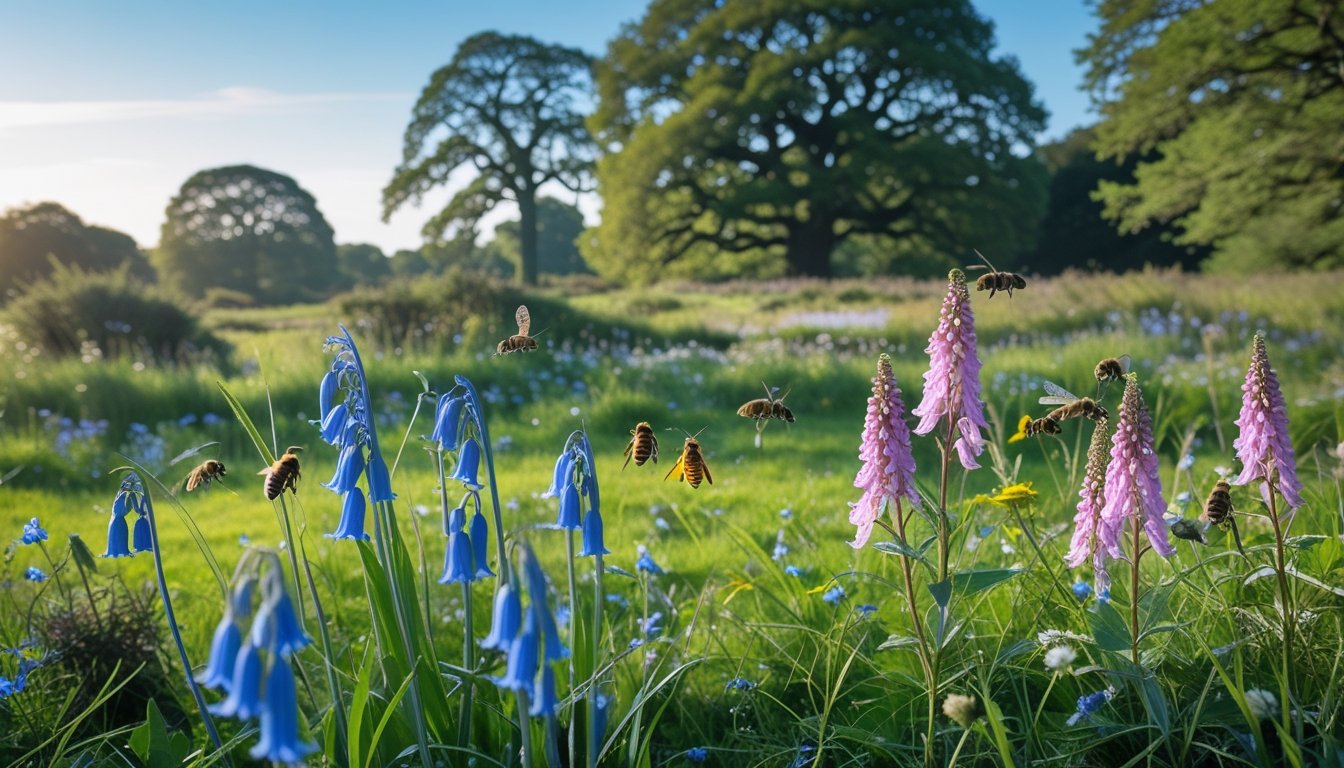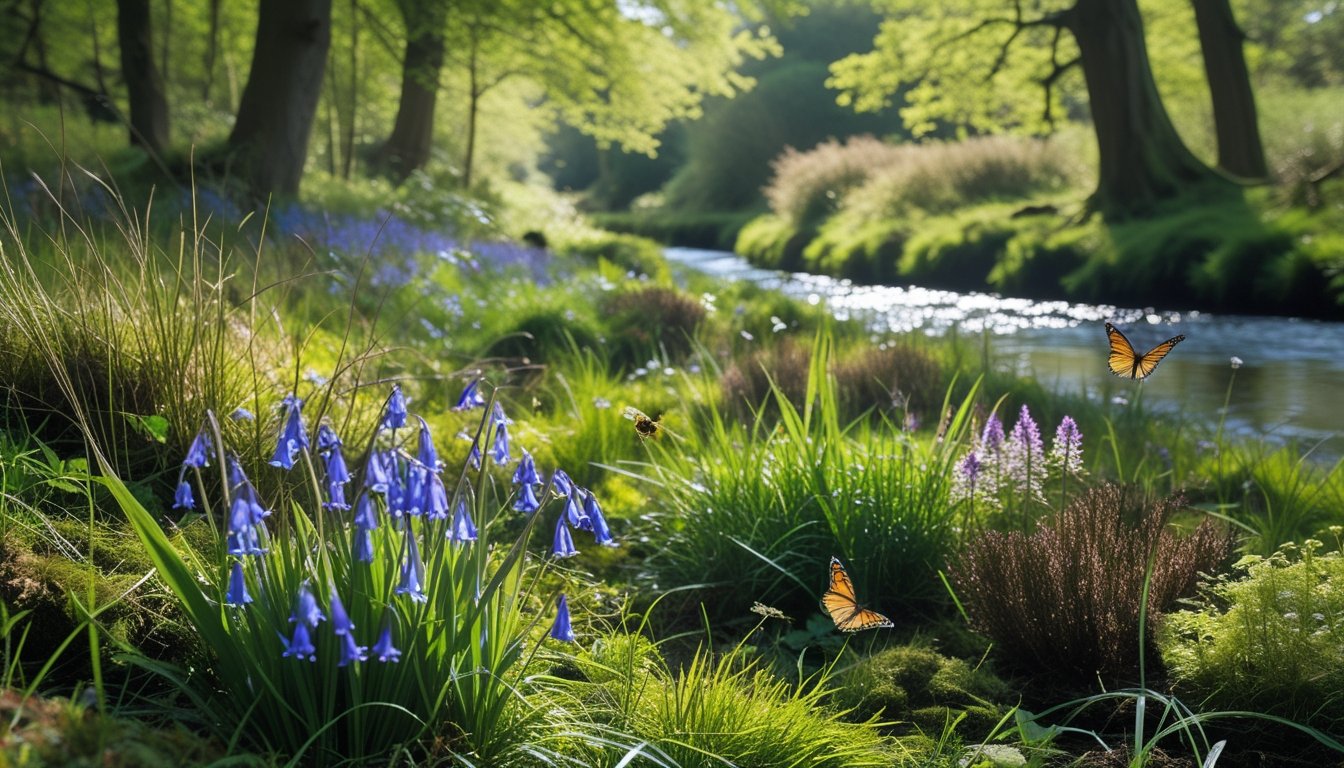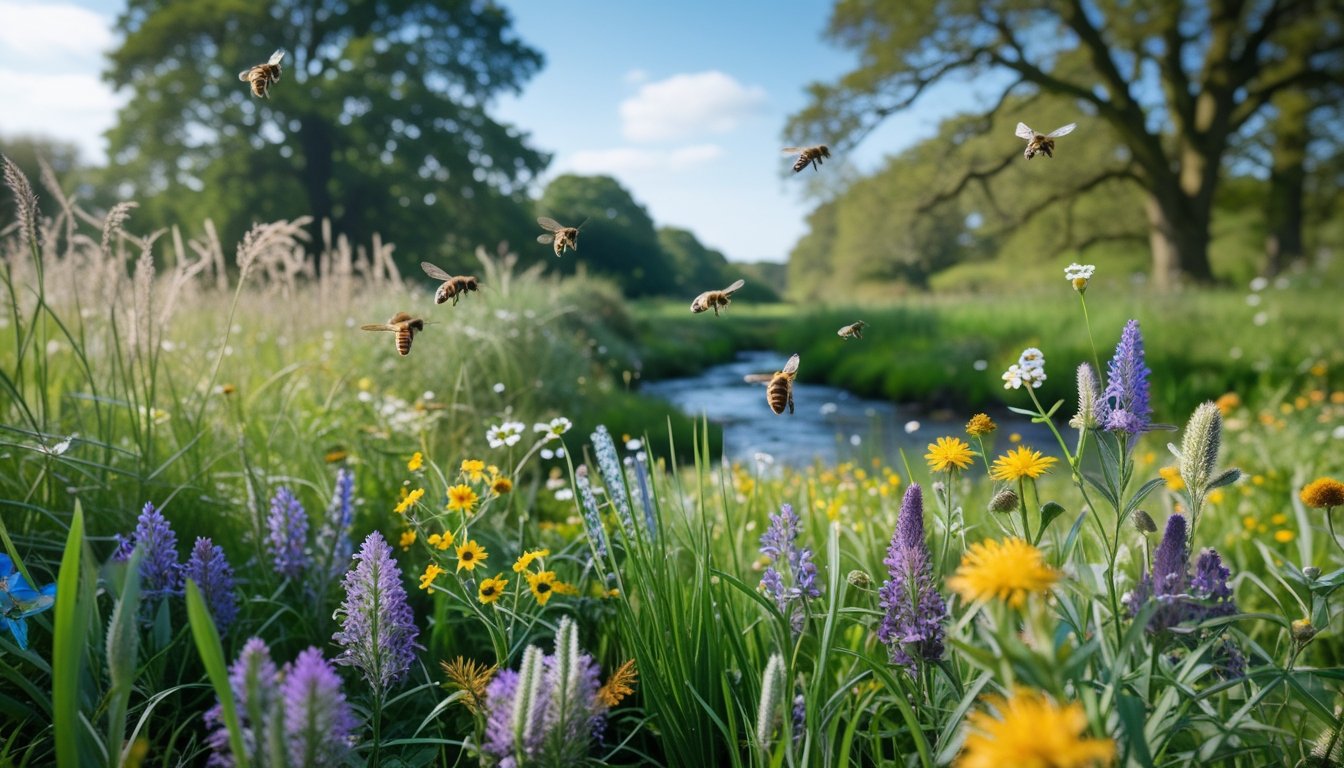Late updated: 16 Sep 2025 08:09
Written by: Emily Thornton
The Impact Of Native Plants On UK Ecosystems: Enhancing Biodiversity and Resilience
The decline of native plant species in the UK poses a significant threat not only to our landscapes but also to the intricate ecosystems they support. Native plants are essential for maintaining biodiversity as they provide habitat and food sources for local wildlife. By preserving these plants, we can enhance ecological resilience and contribute to combating climate change.

The role native plants play in our ecosystems is increasingly recognised for its environmental and cultural importance. From improving soil health to promoting sustainable gardening practices, native flora supports life in a myriad of ways. They require less maintenance and water compared to foreign varieties, making them ideal for conservation efforts.
The challenges facing native plants are numerous, stemming from both natural and human influences. Invasive species and modern agricultural practices disrupt their growth, while pollution adds to their struggles. As we explore these issues further, it becomes clear we need to prioritise the protection of native species to safeguard the UK's rich natural heritage.
Key Takeaways
- Native plants are crucial for biodiversity and ecological resilience.
- They require less maintenance, supporting sustainable practices.
- Major threats include invasive species and pollution.
Native Plants and Their Role in UK Ecosystems
Native plants hold a vital function in the UK ecosystems, providing essential support for biodiversity and wildlife. They have evolved over millennia to adapt to local environmental conditions, making them crucial for maintaining ecological balance and supporting native biodiversity.
Definition and Characteristics of Native Plants
Native plants are those species that occur naturally in a specific region, having evolved without human intervention. In the UK, these plants have coexisted with native wildlife for thousands of years. They are well-adapted to the local soil, climate, and other environmental factors. This adaptation allows them to grow efficiently, often with fewer resources like water and fertilisers.
Typical characteristics of native plants include hardiness and a resistance to local pests and diseases. Unlike exotic species, native plants usually require less maintenance, benefiting gardeners and conservationists alike. They form the foundation of ecosystems, creating habitats and providing food sources for various species, thus fostering a stable and resilient environment.
Biodiversity Enhancement Through Native Species
Introducing native plants into gardens and public spaces can dramatically enhance biodiversity. These plants support a wide range of local flora and fauna, encouraging a diverse ecological community. By providing food and habitat, they attract a multitude of insects, birds, and other wildlife.
Our ecosystems rely on this biodiversity for resilience against disturbances like climate change and disease. Rich biodiversity ensures that ecosystems can recover more quickly from such challenges. Native species serve as hosts for pollinators, ensuring the successful reproduction of many plant species and boosting the local ecosystem's health and longevity.
Impacts on Native Wildlife and Pollinators
Native plants play a significant role in supporting native wildlife by offering food and shelter. Many birds, mammals, and insects have developed intricate relationships with these plants. For instance, certain bee species are adapted to pollinate only native flowers.
Pollinators such as bees and butterflies are crucial for the reproduction of various plant species. By supporting these pollinators, native plants contribute to maintaining the natural cycles within ecosystems. Additionally, native plants help sustain insect populations that serve as a food source for birds and small mammals, further supporting the local food web.
Challenges Facing Native Plants and Ecosystem Health

Native plants in the UK face considerable challenges impacting ecosystem health. Key issues include pressures from invasive and non-native species, the adverse effects of climate change, and habitat loss. These factors collectively threaten biodiversity and overall plant health.
Threats from Invasive and Non-Native Species
Invasive species are one of the critical challenges to native plant survival. Non-native species, often introduced intentionally or accidentally, compete with native plants for resources such as sunlight, nutrients, and water. This competition frequently leads to a decline in native plant populations.
In the UK, plants like rhododendron and Japanese knotweed have become problematic. Rhododendron ponticum can dominate landscapes, creating dense thickets that prevent native plants from growing. Similarly, Japanese knotweed disrupts local environments and infrastructure. Moreover, invasive species can spread diseases and pests to which native species have not developed resistance, further affecting plant health and biodiversity.
Effects of Climate Change and Habitat Loss
Climate change presents profound challenges for native plant resilience. Rising temperatures and changing precipitation patterns alter the growth conditions that native plants rely upon. These changes can result in shifts in plant distribution and the emergence of new pests and diseases.
Habitat loss, driven by urban development and agriculture, further compounds these issues. As natural landscapes are converted for human use, native plants lose the spaces they need to thrive. Fragmented habitats can isolate plant populations, impeding genetic exchange and reducing adaptability to environmental stresses. As a consequence, native plants struggle to survive in environments that once suited them.
Consequences for Biodiversity and Plant Health
The decline of native plants has serious implications for biodiversity. We depend on native plants to help maintain ecosystem balance. They provide food and habitat for a wide range of wildlife, including birds and insects. The loss of native plants can lead to a cascade of negative effects throughout the ecosystem.
Biodiversity loss affects plant health directly. Reduced genetic diversity within species can make plants more susceptible to diseases. Moreover, native plants are integral to soil health. Their roots help prevent erosion and contribute to nutrient cycling. Without them, ecosystem functions may weaken, resulting in less resilient environments that support fewer species.
Frequently Asked Questions

Native plants play a crucial role in the UK's ecosystems by supporting local wildlife, enhancing soil health, and aiding in climate resilience. It's important to understand how these plants contribute to ecological stability and the efforts to conserve them.
How do native plants support local wildlife in the UK?
Native plants provide essential resources like food, shelter, and nectar for insects, birds, and other wildlife. By cultivating a habitat that is familiar and beneficial to these creatures, native plants help maintain healthy populations of pollinators and other species.
What role do indigenous species play in maintaining British ecosystem stability?
Indigenous species have evolved alongside each other over centuries, creating a balanced ecosystem. This interdependence ensures stability as native plants and animals form complex webs of interaction, supporting each other's survival and the overall health of the environment.
Can the introduction of non-native plants threaten the balance of the UK's ecosystems?
Yes, non-native plants can disrupt local ecosystems. They often compete with native flora for resources, potentially leading to a decline in native species. This imbalance can adversely affect the wildlife that depends on native plants, threatening the ecological equilibrium.
What benefits do native plants offer for soil health and erosion control in the UK?
Native plants improve soil health through their deep root systems, which aid in nutrient cycling. These roots also help prevent soil erosion by stabilising the ground. This reduces the need for artificial interventions and maintains the natural landscape.
How does the diversity of native flora contribute to the resilience of UK ecosystems against climate change?
A diverse array of native plants enhances ecosystem resilience by supporting a wide range of wildlife and maintaining ecological functions. This diversity helps ecosystems adapt to climate changes, as different species can tolerate varying conditions and contribute to overall stability.
What conservation efforts are in place to protect native plant species in the United Kingdom?
Conservation initiatives focus on habitat preservation, restoration projects, and public education. Organisations work to protect and restore native plant habitats, raising awareness of their importance to ensure the continued health and biodiversity of the UK's ecosystems.
